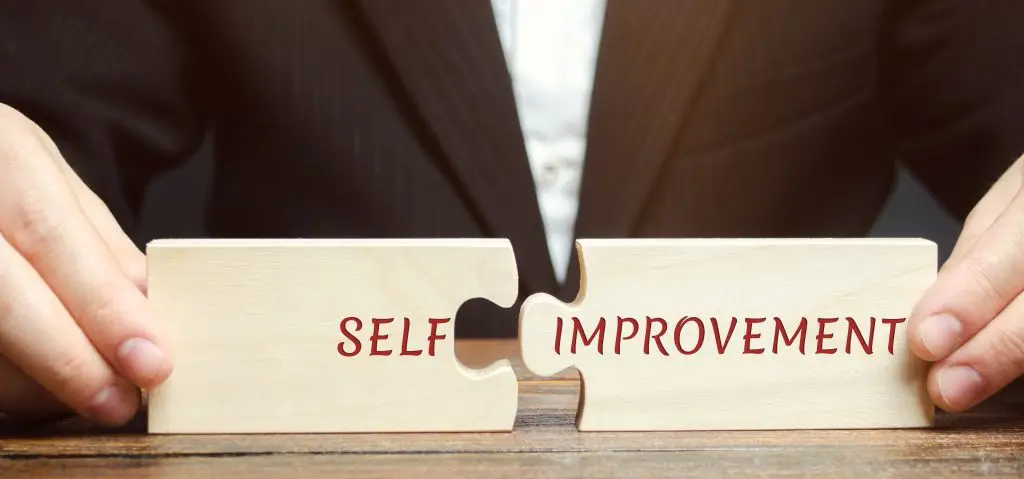In this blog, we’ll dive into the depths of self-improvement, why it’s necessary, and how you can start consciously improving yourself in a way that brings lasting change.
What is Self-Improvement, Really?
Self-improvement is the act of deliberately working on your growth and development—whether it’s emotionally, mentally, physically, or even spiritually. It’s about making a conscious effort to better yourself over time. Unlike other creatures in the animal kingdom, humans are naturally inclined to improve. Take, for example, my cats. From the time they were kittens, their basic needs have remained the same—food, water, safety, and rest. They don’t wake up each day with a sense of purpose to improve themselves, because they don’t have the capacity to do so.
As humans, however, we are constantly looking to evolve. It’s part of who we are. But improving ourselves isn’t just about reacting to the world around us—it’s about actively choosing to become better, every day, in ways that align with our deepest values.
The Trap of Reactive Improvement
Sure, we’re always evolving. We grow older, we gain experiences, and we naturally adapt to different circumstances. But here’s the thing: if we’re improving passively, we’re not truly taking control of our growth.
Imagine this: You have a boss who constantly yells at you, and over time, you learn to tolerate their anger. You react by modifying your behavior just to avoid conflict. You might feel like you’re handling the situation better, but in reality, you’re just adjusting to the dysfunction. You’re not solving the problem, you’re just coping with it.
When you focus on intentional self-improvement, you begin to understand why certain things trigger you. You take responsibility for your part in the dynamic and actively choose to improve your communication, emotional responses, and work skills. By doing so, you’re not just adapting to the situation, you’re changing the situation. You stop falling into old patterns and start creating new, more productive outcomes.
Without this kind of intentional improvement, you risk repeating the same cycles of frustration and disappointment. If you’re asking yourself, “Why does this always happen to me?” that’s a clear signal that it’s time to shift your perspective and take action to improve yourself.
Why Don’t We Want To Improve?
If self-improvement is so important, why do so many people resist it? The truth is, there are several barriers that prevent people from committing to personal growth:
- Lack of self-awareness: Many people believe they’re already perfect, and they don’t see a need for change.
- Lack of motivation: When life feels stagnant, it’s easy to lose the drive to improve.
- Fear of losing identity: As we age, we become more attached to the version of ourselves we’ve always known.
- Fear of change: Transformation can feel overwhelming and uncertain.
- Fear of hard work: Self-improvement requires consistent effort, and not everyone is ready to face that challenge.
The unfortunate result of neglecting self-improvement is a lack of growth. When we stop striving to improve, we stagnate. Our brains stop releasing the dopamine that motivates us, leading to dissatisfaction, frustration, and ultimately, a decline in mental health.
This is why taking small, deliberate actions toward improvement—whether it’s in your health, relationships, or career—can reignite your motivation and lead to meaningful change.
Busting the Myths: Self-Improvement Isn’t a Quick Fix
A common misconception about self-improvement is that it’s just about achieving goals or reading a bunch of self-help books. Sure, those things play a part, but real self-improvement is so much deeper. It’s about transformation at the core level, and it’s not a “one-time fix.”
True self-improvement involves two main phases:
- The internal growth phase: This is where you improve your self-awareness, emotional regulation, habits, and mindset.
- The integration phase: This is the more challenging part—taking all that personal growth and integrating it into your relationships and the real world.
This second phase is what often trips people up. As you improve, your perception of the world changes, and the people around you may not understand or accept your transformation. This can create friction and make you question your progress. But if you stay focused, you’ll see that the true test of self-improvement is how well you can integrate it into your everyday life and relationships.
The Dark Side of Self-Improvement: Beware of Superiority
It’s easy to fall into the trap of thinking that you’re better than others because you’ve learned more or changed more. This can lead to a sense of superiority, which ultimately alienates you from others. And that’s where self-improvement can become toxic.
However, self-improvement isn’t about being “better than” anyone else. It’s about becoming the best version of yourself—so you can serve the world around you better. The key to avoiding self-righteousness is to use your growth to improve your relationships and make the world around you better, not just to elevate yourself.
For example, I had a client who was struggling with a difficult colleague at work. Through coaching, she learned to see that the conflict was largely due to a misunderstanding. Once she applied the communication skills she had learned, the situation improved dramatically, and harmony was restored.
What Happens if We Don’t Improve?
Imagine not updating your phone when a new version of the operating system is released. You’d miss out on new features, your apps wouldn’t work as smoothly, and you’d eventually find yourself stuck with outdated technology. The same thing happens when we neglect self-improvement. If we don’t update ourselves, we start to stagnate. Our health deteriorates, our relationships struggle, our careers plateau, and we stop living up to our potential.
This stagnation affects our dopamine system, which is responsible for motivation and reward. When we stop improving, we stop feeling the rush of accomplishment and joy that comes with growth. As a result, we fall into a cycle of disappointment and dissatisfaction, which can lead to stress, anxiety, and depression.
Embrace the Struggle: Growth is Not Easy
Changing habits—especially long-standing ones—can be incredibly stressful. But just like a muscle that grows stronger through resistance, personal growth requires pushing through discomfort. Research in biology shows that small, manageable stressors—like setting goals or challenging your beliefs—actually build resilience and make you better equipped to handle bigger challenges later on.
If you want to change your life, you must embrace the stress of growth. Without it, you risk becoming stagnant, burned out, and even ill. That’s why taking small, intentional steps every day toward improvement is so powerful.
The Secret to Long-Term Success: Consistency
The reality is, self-improvement isn’t about quick fixes or overnight success. It’s about creating lasting change that becomes part of your life’s fabric. It’s about forming positive habits that align with your values, and over time, those habits will lead to meaningful, permanent changes.
Epigenetics research shows that our habits can literally change the expression of our genes. This means that by forming positive behaviors—like exercise, learning new things, and managing stress—we can improve our mental and physical health, enhance our longevity, and even increase our emotional resilience.
But to experience this transformation, you must be patient. Change takes time. It’s about consistent effort over months and years, not quick hacks or shortcuts.
Final Thoughts
Self-improvement is a lifelong journey—one that requires dedication, patience, and a willingness to embrace discomfort. It’s about more than just setting goals or reading a book. It’s about deep, transformative change that integrates into every aspect of your life.
If you’re ready to stop repeating the same cycles of frustration and disappointment, it’s time to make a conscious decision to improve yourself. Start small, stay consistent, and embrace the discomfort that comes with growth.
Remember: Action leads to more action. Every step you take toward improving yourself will unlock new opportunities and help you unlock your full potential.
Are you ready to begin your journey of self-improvement today? The best version of you is waiting.
What’s one area in your life that could use a little self-improvement today? Share your thoughts in the comments below!



Hi , great blog !
Thank you Sophie!